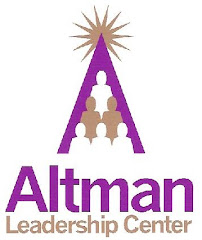The other day I had to drop by the kids’ high school counselor, to see what classes they ended up with for what would have been the girls’ Junior, and Matthew’s Sophomore year. As the counselor handed me the kids’ schedules she noticed something odd on Meagan’s schedule. This prompted her to take back the sheets and double-check them.
Between moving schools from Coeur d’ Alene to Austin, and taking dual credit classes, the girls got a bit ahead. I found out that if the girls take their Senior English class after the school day this coming year, they will graduate a year early. This realization left us with several options, all of which have a potentially significant downside.
If the girls graduate early, they will miss one year of their “High School Experience.” In their case, they are each in sports and FFA, but competing at the Collegiate level is not something they want. If this is important to your student, they probably want to stay in high school.
They will also be leaving friends behind a year sooner than they would otherwise have to, but both realize this was inevitable given they plan to go out of state for school, hopefully internationally. Last, we are really scrambling to apply for admission and financial aid a year earlier than we planned.
If they take the English class over the summer, between their Junior and Senior years, then they would not be able to “walk” with a graduating class. While not a deal breaker, the girls decided they wanted to attend the ceremony.
Another option was to take only the English class at the high school their Senior year. We were concerned about having one foot in the college student stage of life and another foot in the high school stage, being excited about moving on but having to tidy-up the last high school requirement.
With them graduating early, we will have them at home with us one year to guide their early University experience, helping them to adjust to a new mindset. While NIC’s program of dual enrollment was a great start for MarkII, the transition to a University was still significant.
This will mean they will attend a local University for what would have been their Senior year, then they will apply as transfer students to the University of their choice. In their case, they plan to attend the University of Texas in Austin for one year, with Meagan then applying to Oxford, and Bailey having yet to decide where to transfer. For us, this hiccup appears to have a happy ending, but it did make me reflect on how easily the girls’ education could have been negatively impacted.
From our experience, I suggest to the parents of high schoolers, to make sure every summer you go talk to your child’s counselor; especially if your child is at either end of the educational spectrum. If your child is in AP, dual credit, International Baccalaureate classes, or has transfer credits, correspondence credits, or credits by exam, you need to make sure you know where your child stands for the same reasons we needed to. However, if your child is in danger of not having enough credits to graduate, then staying on top of where they stand allows for earlier intervention and keeps options open.
Communication with teachers and school counselors is critical to your child leaving high school behind with the best chance at higher education and life success. For this reason make sure you don’t put your kids on “auto-pilot” during high school. Keep your hands on the stick, get them off the ground in good flying condition, and then watch them soar!
Mark Altman is a speaker and leadership consultant with the Altman Leadership Center. He has graduate work in Marriage and Family Counseling and is the author of Leadership For All the Mountains You Climb. He can be reached at mark@leadright.net.








No comments:
Post a Comment